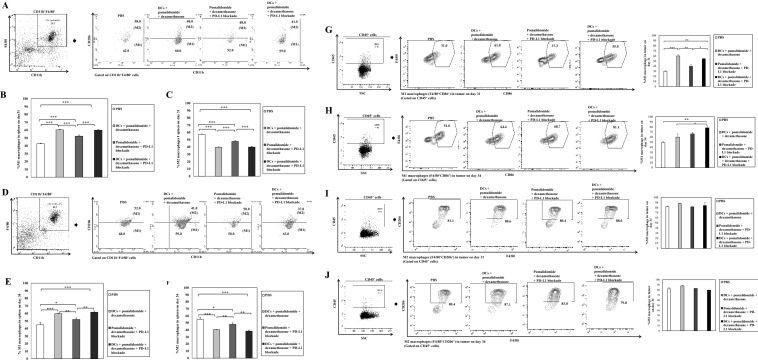Fig. 4.
Enhanced M1 and impaired M2 macrophage polarization in the spleen and tumor microenvironment of mice treated with DC vaccination plus pomalidomide with dexamethasone and PD-L1 blockade. Using flow cytometry, we measured the proportions of M1 and M2 macrophages in the spleen and tumor microenvironment of mice at days 31–34 after treatment. DC vaccination groups displayed a significantly increased proportion of splenic M1 macrophages (a, b, d, e) and decreased proportion of splenic M2 macrophages (a, c, d, f) compared to the PBS control and pomalidomide with dexamethasone + PD-L1 blockade groups (*, P < 0.05; **, P < 0.01; ***, P < 0.001). Moreover, DC vaccination groups exhibited significant increases in the proportion of tumor-infiltrating M1 macrophages compared to the PBS control and pomalidomide with dexamethasone + PD-L1 blockade groups (g, h). Importantly, at day 34 after treatment, treatment with DCs + pomalidomide with dexamethasone + PD-L1 blockade produced a significant increase in the proportion of tumor-infiltrating M1 macrophages compared to all other groups (h). There was no significant difference in the proportion of M2 macrophages in the tumor microenvironment among groups (I, j). These results suggested that the combination of DCs + pomalidomide with dexamethasone + PD-L1 blockade enhanced M1 and impaired M2 macrophage polarization in the spleen and tumor microenvironment of treated mice. The data are representative of three independent experiments

